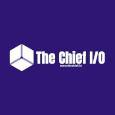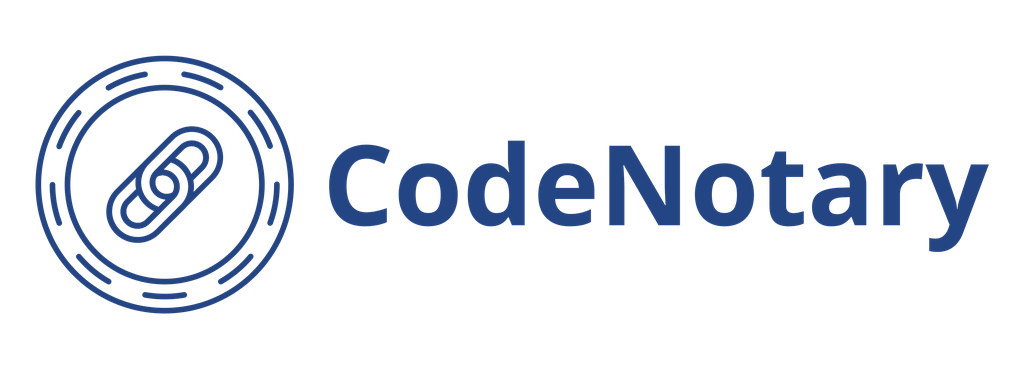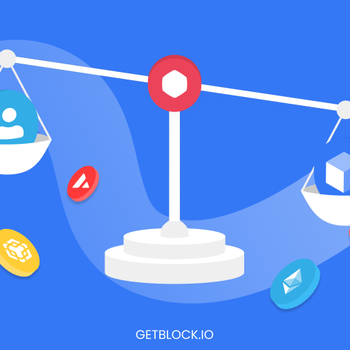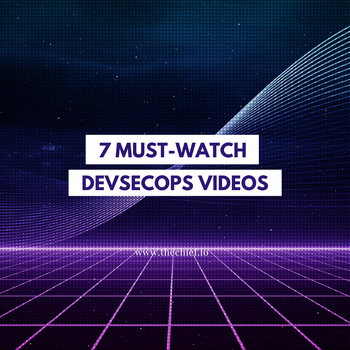4 Unique Projects Relating DevOps with Blockchain
in DevOps , Blockchain

Innovation is the ability to create new horizons out of existing fields in order to push beyond the common industry borders.
In recent years, DevOps and Blockchain have positively impacted each other, which lessened the extra effort needed for developers to innovate. This article has given details needed on how DevOps and Blockchain work hand-in-hand by sharing projects we think are worth discovering.
Blockchain is one of today’s cutting-edge technologies that offer a promise of peer-to-peer decentralization, security, and immutability through the use of shared account ledger, distributed consensus, and smart contracts.
The concept of DevOps, on the other hand, has achieved widespread acceptance over the years. Individually, these two concepts offer a wide range of benefits. However, when combined, several strategic benefits are bound to come out of their fusion. Today, some projects have successfully merged the concepts of Blockchain and DevOps. Here are four of such projects that you should know:
The DSLA Protocol from Stacktical
The DSLA protocol by Stacktical is a Decentralized application platform for hedging against various third-party risks such as cryptocurrency staking, NFT infrastructure, and decentralized finance.
This protocol aims to help stakeholders of any service trade third-party risk with each other. DSLA stands for Decentralized Service Level Agreements (SLA). These are peer-peer contracts that run on a blockchain network and are designed to store and release cryptocurrency depending on the analytics of third-party services' performance.
Unlike regular Service Level Agreements that provide some form of insurance coverage, Decentralized Service Level Agreements leverage incentivizing the speed, power, and uptime that providers can deliver to give an extra layer of trust between users and service providers. The DSLA Protocol is intended to put third-party risk management on auto-pilot.
The second quarter of the year 2019 was the alpha phase introduction of their flagship Ðapp, enabling the Decentralized Service Level Agreement protocol roll-out. In the third quarter of the year 2020, Stacktical launched the beta phase of the DSLA protocol, which was for the validation of the functional performance reliability and security assumptions.
The Mainnet for public smart contracts will be launched by the first quarter of 2021. The official DSLA Protocol developer documentation and SDKs will be made available to the public by the second quarter of 2021. The third and fourth quarter of 2021 is scheduled to launch the DSLA protocol on the Tezos blockchain network and the Elrond blockchain network.
The current price of the DSLA Protocol stands at about USD 0.011629 with an average trade volume of over 2.5 million USD. DSLA has a market cap of approximately USD 74,585,405. The maximum supply of the DSLA coin is 7 billion, and there are currently over 6.4 billion coins in circulation.
Currently, the DSLA is already being used to offset the financial loss of proof-of-stake delegators and improving the connectivity and performance for Decentralized Finance users and service providers.
iExec
iExec is a decentralized cloud resources marketplace. This platform gives users access to off-chain computation and data resources.
Developers can leverage the computation and distributed infrastructure offered by the iExec marketplace to overcome blockchain and cloud services limitations. iExec also allows developers to monetize their services by renting out machine cloud computing power to developers.
Holders of the RLC token can also trade the tokens on the marketplace whenever they want. The goal of iExec is to serve as a global market for cloud resources. This platform uses blockchain technology to match the demand and supply of computing power for many applications.
On the iExec marketplace, users will be able to place work orders to have their work executed. On the other end of the spectrum are the service providers that fulfill work orders and receive RLC each time they do this. RLC is the native token of this cloud platform, and the reward providers get for renting out their applications, server, and data.
By October 2020, iExec had completed all the milestones highlighted in the roadmap, which was released four years earlier. Thanks to innovation and emerging blockchain technology, the platform has innovated more ways than was initially outlined in the white paper. For instance, in collaboration with Intel, the network released the first of its fully trusted computing solution for blockchain. In the coming years, iExec is looking forward to establishing a new roadmap that will drive the marketplace's adoption.
Codenotary
CodeNotary was created to add trust to software and solve many of the system's problems and limitations currently being used to sign code, including the risk of certificate theft by hackers, the possibility of the certificate being assigned to the wrong company; and malicious self-assigned software certificates.
Software codes signed with Codenotary are more reliable and trustworthy. Software signed with this system has an SHA-256 hash assigned to it, which stores the software's identity and guarantees its integrity. This record is also immutable and can be easily verified or audited.
CodeNotary has a tool(vcn) that detects, authenticates, and alerts any behavior involving unauthentic digital assets. vcn verification can be embedded anywhere and can be used to trigger alerts, updates, or workflows
CodeNotary is built on Immudb, which is reputed as the world’s fastest and immutable open source database, making end-to-end tampering or manipulating the software development cycle impossible.
CodeNotary offers a simple and tamper-proof solution for processing transactions both on-premise and in the cloud. Millions of transactions can be recorded and secured with cryptographic verification. CodeNotary cannot overwrite all data signed with this system. They are stored in a tamper-proof state, and auditors can quickly notice any tampering for necessary actions.
Zeeve
Zeeve is an infrastructure provider for developers and DevOps to deploy and manage their blockchain nodes using various protocols. Zeeve provides enterprise-grade blockchain management and expanded web infrastructure for innovators to develop blockchain and Dapps Projects.
Zeeve provides a no-code platform that helps users quickly deploy their decentralized apps and blockchain nodes. When working with this platform, deploying nodes seems to take a few minutes. It also provides advanced analytics, alerts, and other monitoring tools for seamless node management. The GUI analytics dashboard gives advanced monitoring to cloud infrastructures and blockchain infrastructures built on them.
Zeeve serves as an all-in-one platform for all app development stages, from building to deployment and monitoring. It provides a developer toolkit that is designed to speed up the development and testing of decentralized apps. There are also sample GIT integrations and Dapps for easy prototyping.
It supports the deployment of any protocol on all the major cloud infrastructures. Zeeve supports both public and permissioned blockchain protocols needed to deploy nodes or build apps. This includes permissioned protocols like HyperLedger and Corda to general protocols like Ethereum and Algorand. Zeeve also supports hybrid blockchains like DAML.
Users can either use their cloud account or use Zeeve’s hosted services to deploy their nodes and network. The platform also includes a Market place where developers can promote, sell or lease their Dapps directly.
Get similar stories in your inbox weekly, for free
Share this story:

The Chief I/O
The team behind this website. We help IT leaders, decision-makers and IT professionals understand topics like Distributed Computing, AIOps & Cloud Native
Latest stories
How ManageEngine Applications Manager Can Help Overcome Challenges In Kubernetes Monitoring
We tested ManageEngine Applications Manager to monitor different Kubernetes clusters. This post shares our review …
AIOps with Site24x7: Maximizing Efficiency at an Affordable Cost
In this post we'll dive deep into integrating AIOps in your business suing Site24x7 to …
A Review of Zoho ManageEngine
Zoho Corp., formerly known as AdventNet Inc., has established itself as a major player in …
Should I learn Java in 2023? A Practical Guide
Java is one of the most widely used programming languages in the world. It has …
The fastest way to ramp up on DevOps
You probably have been thinking of moving to DevOps or learning DevOps as a beginner. …
Why You Need a Blockchain Node Provider
In this article, we briefly cover the concept of blockchain nodes provider and explain why …
Top 5 Virtual desktop Provides in 2022
Here are the top 5 virtual desktop providers who offer a range of benefits such …
Why Your Business Should Connect Directly To Your Cloud
Today, companies make the most use of cloud technology regardless of their size and sector. …
7 Must-Watch DevSecOps Videos
Security is a crucial part of application development and DevSecOps makes it easy and continuous.The …











